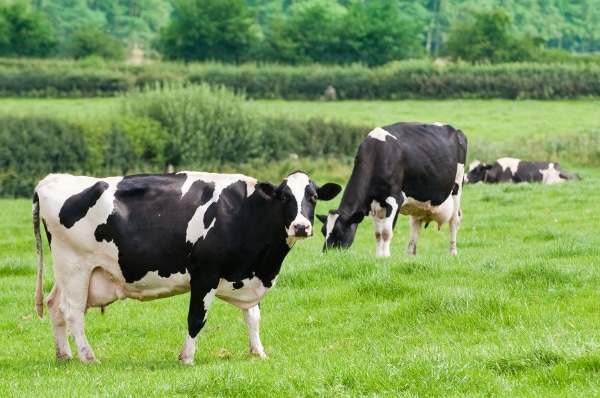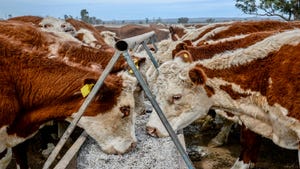Dairy industry turns to new restrictions in response to HPAI outbreak
Western United Dairies CEO Anja Raudabaugh talks about why it is important for the dairy industry to not let down its guard and take this action.
April 12, 2024

In an effort to prevent domestic cattle from being exposed to highly pathogenic avian influenza virus, 17 states have restricted cattle importations from states where the virus is known to have infected dairy cows.
In this week’s Feedstuffs in Focus podcast, we catch up with Western United Dairies (WUD) CEO Anja Raudabaugh who talked with us about why it is important for the dairy industry to not let down its guard and take this action. Click here to listen.
Following the California dairy industry's request for additional action, the California Department of Food & Agriculture (CDFA) increased its health certificate requirements to include the following: "All animals identified on this Certificate of Veterinary Inspection (CVI) have been inspected and do not originate from a premises with a confirmed detection of Bovine Associated Influenza A (H5N1) Syndrome** or that is currently under investigation as a suspect premises." It was expected that the added statement and shortened time from veterinarian inspection to movement into California for dairy breeds from affected states would take some time to implement, but Raudabaugh said this week that she was confident that communication has taken place and the new restrictions are already in place.
The state said in announcing the restrictions in early April that if haulers do not have appropriate paperwork, the cattle destination would be immediately sent to the District Animal Health Branch Office for follow-up. Continuing or egregious violations could result in fines up to $1,000 per head per day. High risk cattle moved in violation may be quarantined by CDFA for 21 days. Raudabaugh said the avian influenza outbreak in dairy cattle represents a significant development in the epidemiological landscape. Symptoms affecting memory and lactation glands have a distressing impact on dairy cattle, including reduced milk production. The potential long-term impact of prolonged milk production loss is substantial, she said, resulting in a large cull rate at a time when younger replacement animals are not in abundance. “For international purposes, it is important to be clear that we are not stopping imports but rather are enforcing the existing import prohibition against bringing diseased cattle into California by adding more specifics,” said Raudabaugh.
She also noted that it is looking more and more like the cow-to-cow transmission is primarily via mechanical spread associated with milk and that heat treatment kills the virus. Studies are continuing and it is too early to draw definitive conclusions.
Raudabaugh emphasized that beef and milk are safe to consume.
“Due to the outbreak's geographic spread across several states and the challenges associated with asymptomatic transmission, dairy farmers must take biosecurity measures and collaborate with veterinarians. In the wake of the crisis, disruptions in production pose economic strains on dairy farmers, resulting in a collaborative effort to disseminate updated information and implement protective measures,” said Raudabaugh. As avian influenza poses unprecedented challenges to the dairy industry, Raudabaugh encourages WUD members and others in the dairy industry to stay informed through reliable sources and to take proactive measures.
You May Also Like



